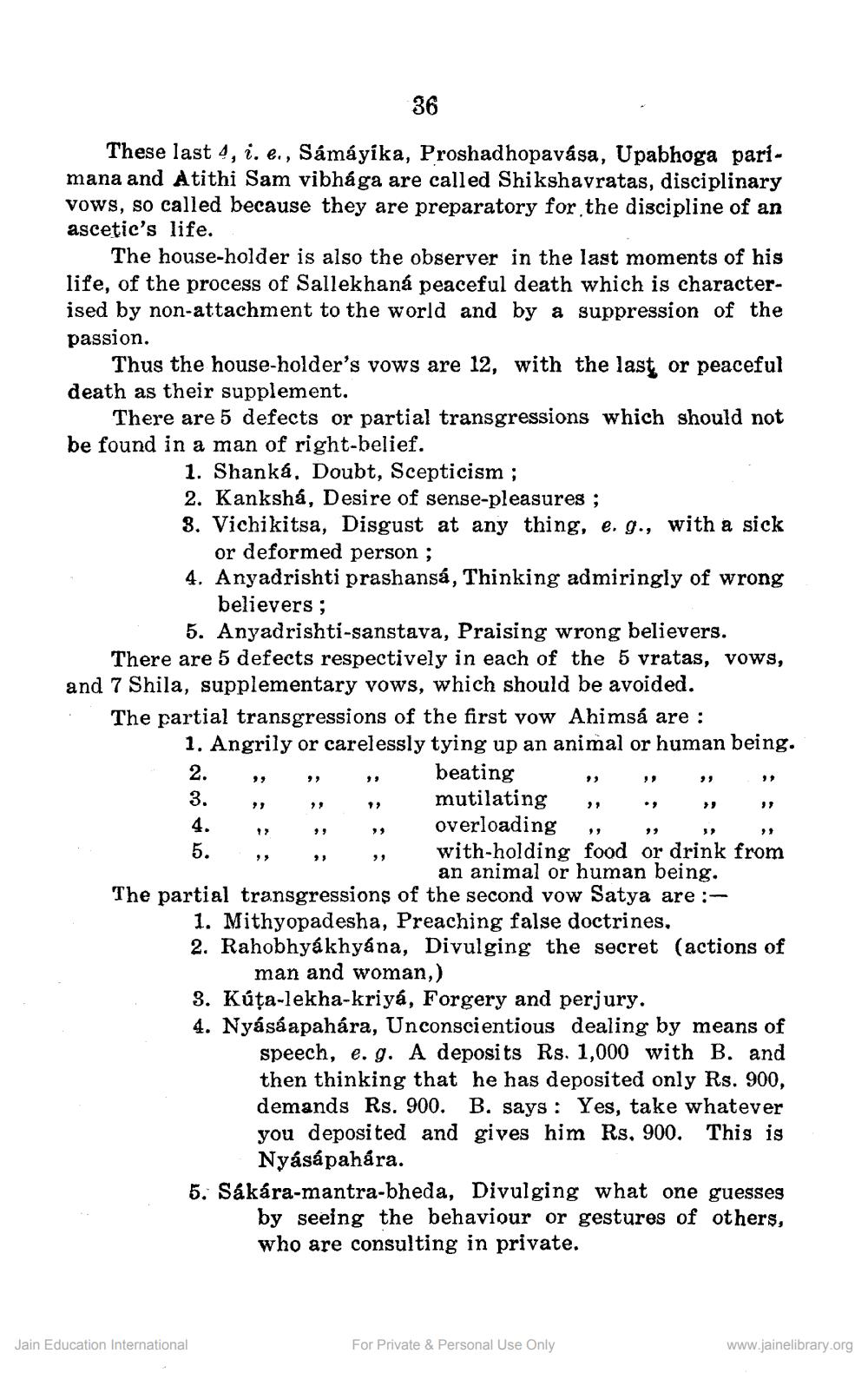________________
36
These last 4, i. e., Sámáyika, Proshadhopavása, Upabhoga parimana and Atithi Sam vibhága are called Shikshavratas, disciplinary vows, so called because they are preparatory for the discipline of an ascetic's life.
The house-holder is also the observer in the last moments of his life, of the process of Sallekhaná peaceful death which is characterised by non-attachment to the world and by a suppression of the passion.
Thus the house-holder's vows are 12, with the last or peaceful death as their supplement.
There are 5 defects or partial transgressions which should not be found in a man of right-belief.
1. Shanka, Doubt, Scepticism ; 2. Kanksha, Desire of sense-pleasures ; 8. Vichikitsa, Disgust at any thing, e.g., with a sick
or deformed person ; 4. Anyadrishti prashansá, Thinking admiringly of wrong
believers ;
5. Anyadrishti-sanstava, Praising wrong believers. There are 5 defects respectively in each of the 5 vratas, vows, and 7 Shila, supplementary vows, which should be avoided. The partial transgressions of the first vow Ahimsá are : 1. Angrily or carelessly tying up an animal or human being.
beating 3. mutilating " .,
» overloading » » » » 5. ,
,
with-holding food or drink from
an animal or human being. The partial transgressions of the second vow Satya are:
1. Mithyopadesha, Preaching false doctrines, 2. Rahobhyákhyána, Divulging the secret (actions of
man and woman,) 3. Kúţa-lekha-kriya, Forgery and perjury. 4. Nyásáapahára, Unconscientious dealing by means of
speech, e.g. A deposits Rs. 1,000 with B. and then thinking that he has deposited only Rs. 900, demands Rs. 900. B. says : Yes, take whatever you deposited and gives him Rs. 900. This is
Nyásápahára. 5. Sákára-mantra-bheda, Divulging what one guesses
by seeing the behaviour or gestures of others, who are consulting in private.
Jain Education International
For Private & Personal Use Only
www.jainelibrary.org




